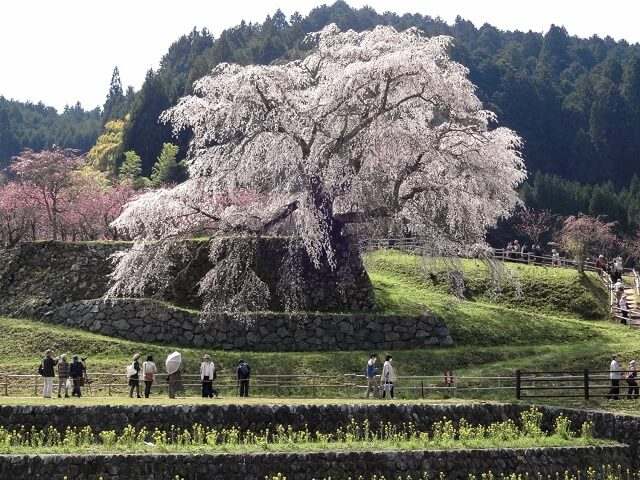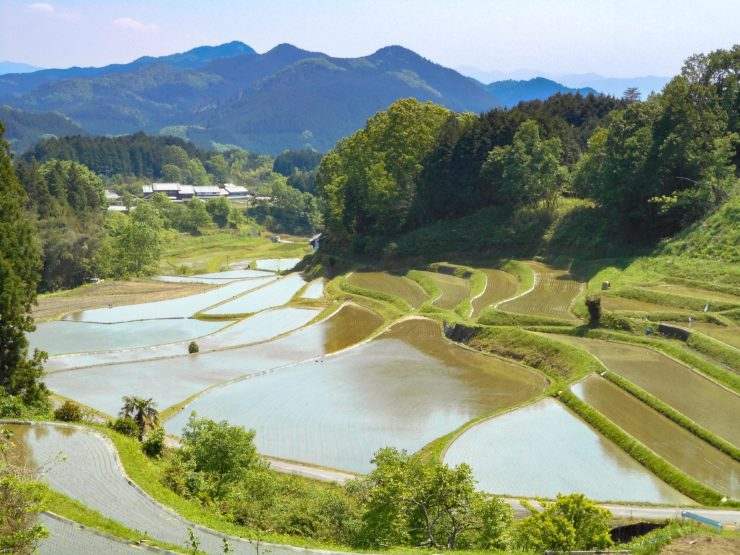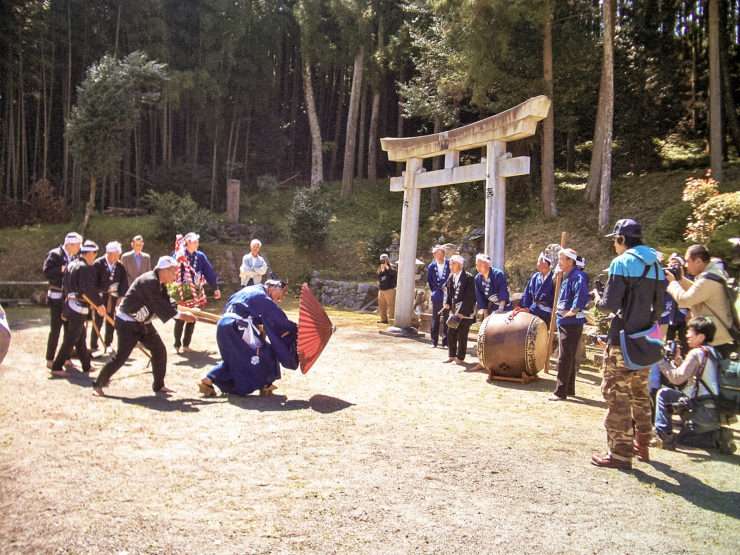
Traditional cities like Kyoto and Nara have long attracted tourists from around the world, but now that visitors are starting to go a bit off the beaten path they’re discovering that just nearby are towns steeped in history and overflowing with the beauties of the countryside. Such is the case with Uda, my hometown, situated on the Yamato Plateau in northeastern Nara Prefecture.
-
Uda is actually made up of four historical towns: Haibara, Ouda, Utano, and Muro, each with its own history and character. Like much of Nara Prefecture the temperate climate and atmosphere invoke the classic, rural Japan that somehow even city-dwellers can “remember” and feel a nostalgia for despite never living there.
The original castle town Ouda is home to the ruins of the Uda Matsuyama castle, but especially attracts visitors to the fortified residence of Goto Matabei, a samurai from the Warring States Period. Jutting out from the tall rock walls is the ancient Matabei Zakura, an iconic weeping cherry tree of 300 years named after the famed warlord himself.![Rural Nara: Uda City]()
Rural Nara: Uda City
Walking around through the different parts of Uda shows every element of traditional countryside life, from rice fields and brilliant red azaleas in spring to an abundance of maple trees that peak to a bright red in the fall. The people of Uda have appreciated and worshipped this local nature and continue these traditional rituals, such as the Onda Festival on May 5th in Ouda.
May is rice planting season, so with this festival we pray for a successful harvest and celebrate it in advance! Local participants mimic rice planting while wearing traditional costumes, as on this day we are not supposed to actually plant our own rice fields, but rather plant for the gods.![Rural Nara: Uda City]()
Rural Nara: Uda City
As part of the tradition, men dressed as young female farmers dance to the traditional farming songs, while children play tricks on them, such as flipping up their skirts. It is believed that the naughtier the trick, the richer the harvest.
Such rituals are rare in Japan, and harken back to the agricultural lifestyle of the olden times.- Hongo no Taki Sakura (Matabee Sakura)
-
-
- Nara Uda-shi Ouda Hongo
-
-
-
- 0745-82-2457
-
View All








